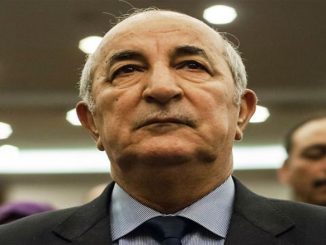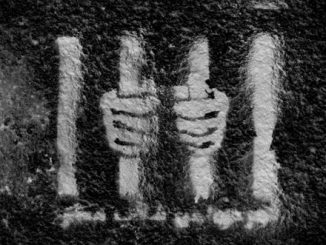
Prisoners in Egypt’s notorious high-security Aqrab (Scorpion) Prison have gone on hunger strike in protest at the death of a fellow inmate as a result of medical negligence.
Dr. Amro Abou Khalil, a psychiatrist held in pretrial detention since last October, died on Sunday after repeated calls for urgent medical care were ignored.
Observers say that security forces stormed his private clinic and arrested him in 2019 in order to put pressure on his brother, self-exiled opposition figure Haitham Abou Khalil.
“We declare that we have gone on hunger strike until we are released from this hell called the Scorpion Prison,” said the prisoners. “Otherwise, death while on [hunger] strike will be more honorable for us.”
They added that they had asked for Abou Khalil to be admitted to the prison’s hospital on Sunday morning when he showed signs of sickness. However, the prison authorities did not respond until 3:30pm, when his chest pain intensified and they eventually took him out of his cell.
“The prison administration has committed another crime against Dr Amro Abou Khalil, on top of their previous crimes, by their tardiness in providing timely and suitable medical help when the thrombosis was still in its early stage at 9 am,” Scorpion prisoners said.
“This crime is an episode in a series of systematic murders. One State Security officer previously told one of the [Scorpion Prison] detainees that he has direct orders from Al-Sisi to kill prisoners slowly.”
Aisha Al-Shater, daughter of top Muslim Brotherhood leader Khairat Al-Shater, and Ola Al-Qaradawi, granddaughter of the scholar Yusuf Al-Qaradawi, are both being held in solitary confinement as a reprisal for their relatives’ opposition to the regime.
Since the 2013 coup, hundreds of prisoners have died in Egypt detention centres, many from medical neglect or torture.
The Committee for Justice estimates the number of deaths to be around 958.
Human Rights Watch have just urged Egypt’s authorities to open investigations into the deaths of four detainees over three days. No meaningful investigations have been conducted into how or why so many people have died in detention.
Since Sisi led a military coup in 2013 against Egypt’s first democratically-elected President, Mohamed Morsi, the Egyptian authorities have launched a persistent crackdown on political opponents and dissidents.
At least 60,000 have been arrested and detained on political grounds, with scores more forcefully disappeared, according to Human Rights Watch. Morsi also died in state custody last year.



